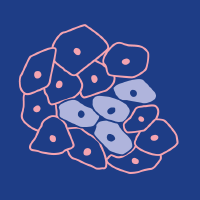Topic Editors

2. Laboratório para a Investigação Integrativa e Translacional em Saúde Populacional (ITR), Rua das Taipas, 135, 4050-600 Porto, Portugal
3. Departamento de Ciências da Saúde Pública e Forenses e Educação Médica, Faculdade de Medicina da Universidade do Porto, Alameda Professor Hernâni Monteiro, 4200-319 Porto, Portugal

Life of Cancer Survivor
Topic Information
Dear Colleagues,
Early tumor detection strategies, effective treatments, and follow-up care have contributed to increased cancer survival, although optimal cancer care will always need to be updated in light of new evidence, and disparities between and within countries still need to be addressed. From acute to extended and permanent survival, patients living after their cancer diagnosis face treatment and its acute, long-term, and late complications, uncertainties, fears, and loneliness. While feeling different with cancer sequelae, they struggle to return to an enjoyable life with a job or pursuing education, living with family, friends, and the whole of society. In addition to adapting to post-cancer life and changes in life perspectives and relationships, how society responds to a cancer survivor may also lead to increased difficulties for cancer survivors, namely cancer-related stigma and financial problems. In young cancer survivors, the negative effects of cancer treatments on sexual life and fertility can also affect the possibility of having children. This topic aims to gather research studies on cancer's consequences on different life dimensions of cancer survivors.
Dr. Nuno Lunet
Dr. Natália Araújo
Dr. Samantha Morais
Topic Editors
Keywords
- cancer survivors
- patient-reported outcomes
- quality of care
- second primary cancers
- non-fatal cancer outcomes
Participating Journals
| Journal Name | Impact Factor | CiteScore | Launched Year | First Decision (median) | APC | |
|---|---|---|---|---|---|---|

Cancers
|
5.2 | 7.4 | 2009 | 17.9 Days | CHF 2900 | Submit |

Current Oncology
|
2.6 | 2.6 | 1994 | 18 Days | CHF 2200 | Submit |

Healthcare
|
2.8 | 2.7 | 2013 | 19.5 Days | CHF 2700 | Submit |

Nursing Reports
|
2.4 | 1.6 | 2011 | 30.6 Days | CHF 1800 | Submit |

Onco
|
- | - | 2021 | 18.3 Days | CHF 1000 | Submit |

MDPI Topics is cooperating with Preprints.org and has built a direct connection between MDPI journals and Preprints.org. Authors are encouraged to enjoy the benefits by posting a preprint at Preprints.org prior to publication:
- Immediately share your ideas ahead of publication and establish your research priority;
- Protect your idea from being stolen with this time-stamped preprint article;
- Enhance the exposure and impact of your research;
- Receive feedback from your peers in advance;
- Have it indexed in Web of Science (Preprint Citation Index), Google Scholar, Crossref, SHARE, PrePubMed, Scilit and Europe PMC.


